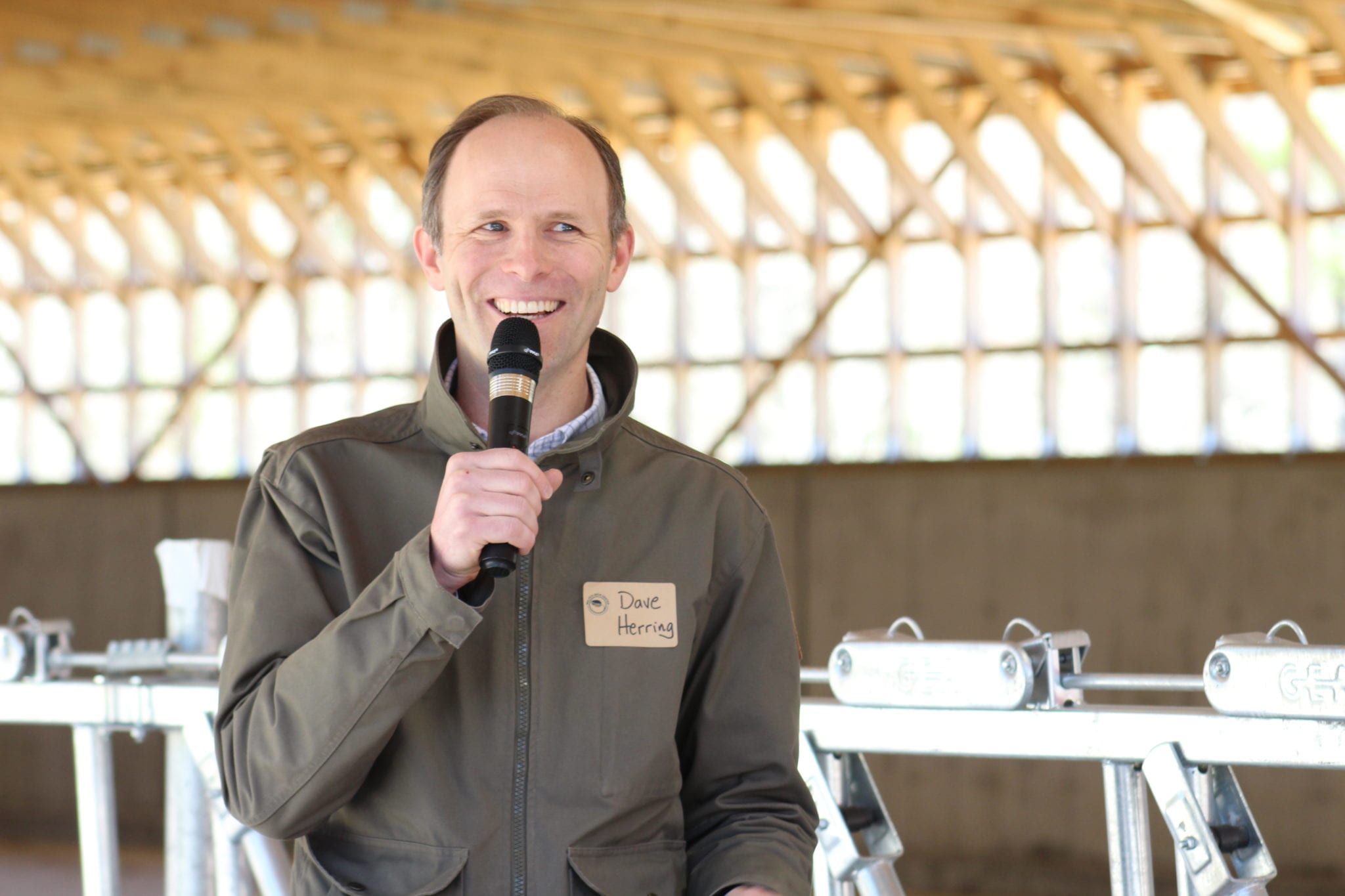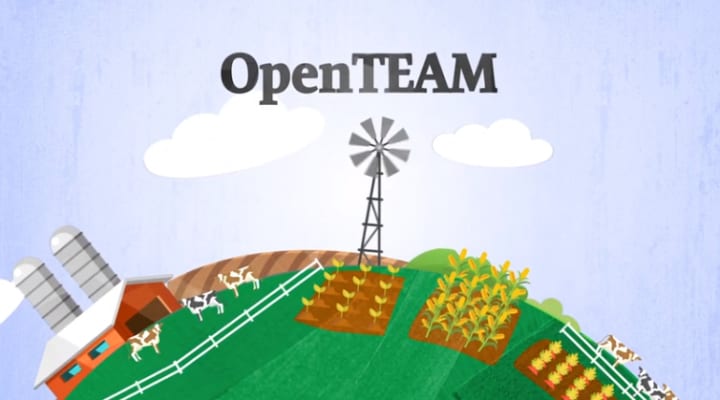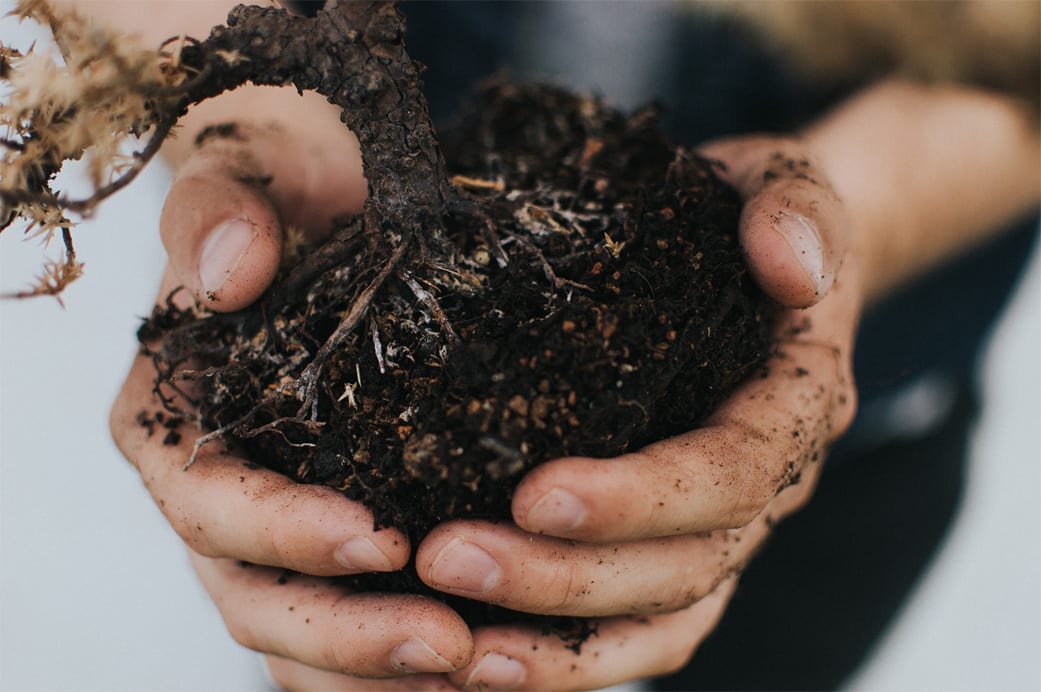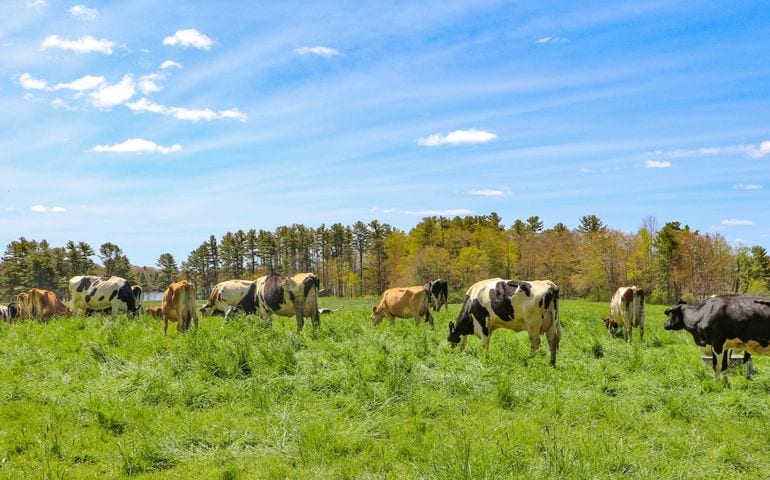FREEPORT– As part of a $10 million collaboration, Wolfe’s Neck Center for Agriculture and the Environment is attempting a “farming revolution” to combat carbon emissions and the effects of climate change, according to the Freeport nonprofit’s executive director, David Herring.
 Working with Stonyfield Organic, the USDA’s LandPKS project and the Foundation for Food and Agriculture, Wolfe’s Neck announced the launch of the Open Technology Ecosystem for Agriculture Management (OpenTEAM), a “farmer-driven, interoperable platform to provide farmers around the world with the best possible knowledge to improve soil health,” officials said in a news release.
Working with Stonyfield Organic, the USDA’s LandPKS project and the Foundation for Food and Agriculture, Wolfe’s Neck announced the launch of the Open Technology Ecosystem for Agriculture Management (OpenTEAM), a “farmer-driven, interoperable platform to provide farmers around the world with the best possible knowledge to improve soil health,” officials said in a news release.
It will provide “any farmer anywhere with free access to site-specific data, providing quantitative feedback on millions of acres of farmland by 2024.” This data allows farmers to make informed decisions about land-use management.
“The sense of urgency right now could not be higher,” Herring said in an interview. “It’s time for action. This is action.”
“In order to solve climate change there has to be an ‘all of the above’ strategy which includes reducing carbon emissions” with solar energy and other sustainable practices that do not require the use of fossil fuels, he explained. “The other piece that’s really critical is increasingly talked about as natural solutions. The way we are managing land on this earth has to dramatically change.” Advertisement
Nearly 40% of the earth’s land surface is used for various facets of agriculture, and according to Stonyfield Organic, agriculture is responsible for as much as 20% of the world’s greenhouse gas emissions. In recent years, to more efficiently manage that land, farming practices have begun to move away from building soil health, Herring said. Plants take in Carbon Dioxide from the atmosphere and store it in the soil. Because of this, practices like tilling soil, for example, release a huge amount of carbon into the atmosphere, he said, and depletes the overall soil health. Healthy soil grows healthy crops. Healthy crops help make healthy humans.
Climate change has had a tangible impact on farms in recent years with more frequent weather extremes. Rainfall in May of this year was higher than usual, he said, and July was the hottest on record in nearby Portland. Two years ago they experienced drought-like conditions throughout mid-summer. “These shifts are really one of the biggest challenges we’re facing as a farm,” he said. This is also why building soil health is important.
“It helps farmers adapt to climate change,” he said. For example, “farms that have more organic matter (in their soil) are going to be more resilient to those extremes. Healthy soil can absorb water faster and store it for longer, creating a buffer against drought.”
OpenTEAM will combine field-level carbon measurement with digital management records, remote sensing, predictive analytics and input and economic management decision support in a “connected platform that reduces the need for farmer data entry while improving access to a wide array of tools. The platform will support adaptive soil health management for farms of all scales, geographies and production systems,” according to the release. It will also help scientists better understand soil health by providing better, more reliable data.

(Courtesy of Wolfe’s Neck Center for Agriculture and the Environment)
Asked about Wolfe’s Neck’s soil quality, Herring said there are some fields where organic matter is really high, and others where it isn’t, but that trying to compare their data to national averages only demonstrated the need for OpenTEAM.
“Getting this kind of information from farms just isn’t happening regularly, effectively or being shared through common databases so that we can create averages,” Herring said. “We want to make it easy for farmers to get this information so they can aspire to achieve continual improvement in their soil health,” he said. The more than $10 million public-private collaboration is funded by a $5 million grant from FFAR, with more than $5 million matching contributions, including a $200,000 grant from The Stonyfield Foundation and $200,000 in in-kind contributions and a grant from Stonyfield Organic.
Implementation will begin in the fall and testing will continue into the 2020 growing season at “hub farms” across the United States and into other countries.
“It has to be on a large scale” if it is going to be impactful, Herring said. “This can’t be a thing that (just) the Wolfe’s Neck Centers of the world can do.” The goal is that by the end, every farm will become a research farm, and there are already hub farms starting work across the country.
At the heart of OpenTEAM is the need for all of the various technological advancements in farming to be more accessible to farmers, no matter the size of their operations. Through the collaboration, they hope to create a “suite of tools” for farmers to implement on a grand scale using the open-source platform.Advertisement
Another goal is to incentivize the program so that farmers are not just getting paid for their product, but also for the outcomes– if they are practicing and managing their farms in a way that is helping solve some of the problems. The technology will help those outcomes be monitored, verified and reported to help benefit farmers.
“Within a year or so we will be able to demonstrate and train other farmers about this program and this software so we can gather information and feedback,” Herring said, though admittedly, “From a farming perspective it probably won’t mean a lot right away.”
Wolfe’s Neck is uniquely suited to lead this charge, Herring said, because of its education and research components combined with its status as a mission-driven, working, organic farm and a nonprofit. With this collaboration, they are positioned to become what he called “a national leader of regenerative agriculture.”





